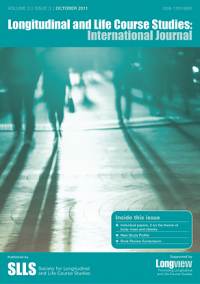
Longitudinal and Life Course Studies
Scope & Guideline
Charting the Course of Lifelong Learning
Introduction
Aims and Scopes
- Longitudinal Data Analysis:
The journal emphasizes the use of longitudinal data to explore changes and developments in individuals' lives, allowing for the examination of causal relationships and the impact of life events over time. - Life Course Perspective:
It adopts a life course framework, which considers the interplay of historical, social, and personal contexts in shaping individual experiences and outcomes throughout life. - Interdisciplinary Research:
The journal promotes interdisciplinary approaches, integrating insights from sociology, psychology, health sciences, and education to provide a comprehensive understanding of life course phenomena. - Focus on Inequality and Disadvantage:
A core area of the journal is the investigation of social inequalities and their implications for health, education, and economic outcomes, particularly among marginalized groups. - Methodological Innovations:
The journal highlights methodological advancements in longitudinal research, including qualitative and mixed-methods approaches, to enhance data collection and analysis.
Trending and Emerging
- Impact of COVID-19:
There is an increasing focus on the effects of the COVID-19 pandemic on various aspects of life, including education, employment, and mental health, highlighting the pandemic's significant influence on longitudinal studies. - Intergenerational Studies:
Research examining intergenerational transmission of behaviors, socioeconomic status, and health outcomes is gaining prominence, reflecting a growing interest in how life course trajectories are influenced by familial and societal contexts. - Mental Health Across the Life Course:
Emerging themes related to mental health, particularly how early life experiences affect mental health outcomes in adulthood, are increasingly featured, emphasizing the long-term consequences of childhood adversity. - Diversity and Inclusion:
There is a trend towards exploring issues of diversity and inclusion, particularly how various social identities intersect to affect life outcomes, reflecting a broader societal focus on equity. - Methodological Advances in Longitudinal Research:
Innovative methodologies, including the use of mixed methods and advanced statistical techniques, are trending, allowing for more nuanced analyses of life course data.
Declining or Waning
- Traditional Educational Trajectories:
Research focusing solely on traditional educational pathways has decreased, likely due to a broader interest in diverse educational experiences and the impact of non-traditional factors on learning outcomes. - Static Health Outcomes:
Studies examining static health outcomes without considering the dynamic nature of health over the life course are becoming less common, as researchers increasingly recognize the importance of longitudinal perspectives in health research. - Single-Cohort Studies:
There is a noticeable decline in studies that focus exclusively on single cohorts. The trend is shifting towards comparative analyses across multiple cohorts to better understand generational differences and trends. - Descriptive Analyses:
There has been a waning interest in purely descriptive analyses of data, as the journal increasingly favors studies that employ advanced statistical techniques to uncover causal relationships or predictive patterns. - Overly Narrow Focus on Specific Life Stages:
Research that concentrates solely on specific life stages, such as adolescence or retirement, is declining in favor of studies that provide a more holistic view across the entire life span.
Similar Journals

QUALITY OF LIFE RESEARCH
Advancing the understanding of well-being and health outcomes.QUALITY OF LIFE RESEARCH is a prestigious academic journal published by SPRINGER, specializing in the interdisciplinary field of public health, with a particular focus on quality of life and health-related outcomes. With an impressive impact factor that places it in the Q1 quartile of the Public Health, Environmental and Occupational Health category, this journal has been a significant contributor to the literature since its inception in 1992. In 2023, it was ranked #111 out of 665 in the Scopus rankings, reflecting its critical role in advancing research that informs public policy and health practices. Located in the Netherlands, the journal not only disseminates high-quality research but also promotes a deeper understanding of the factors influencing individual and community well-being. Despite not being an open-access journal, it offers a variety of subscription options to ensure accessibility for researchers, professionals, and students alike. By fostering a collaborative platform for innovative research and comprehensive reviews, QUALITY OF LIFE RESEARCH continues to enhance scholarly discourse and influence real-world health outcomes.
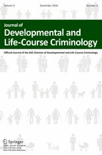
Journal of Developmental and Life-Course Criminology
Advancing Insights into Developmental CriminologyThe Journal of Developmental and Life-Course Criminology, published by Springer International Publishing AG, stands as a vital resource in the interdisciplinary fields of criminology, psychology, and social sciences. With an ISSN of 2199-4641 and an E-ISSN of 2199-465X, this journal provides a platform for high-quality research that examines the intricate relationships between developmental pathways and criminological outcomes. The journal has been recognized with impressive rankings, categorized as Q2 in Applied Psychology, Q1 in Law, and Q2 in Life-span and Life-course Studies for 2023, reflecting its significance in advancing knowledge within these domains. With Scopus rankings placing it within the top percentiles, it offers a unique Open Access option, making research widely accessible to scholars, practitioners, and students seeking insights into the lifecycle approach to crime and justice. Operating from Switzerland at Gewerbestrasse 11, Cham CH-6330, Switzerland, the journal aims to foster scholarly communication and meaningful discourse on pivotal issues pertaining to developmental criminology from 2015 through 2024 and beyond.

JOURNAL OF PEDIATRIC ORTHOPAEDICS-PART B
Connecting researchers and clinicians for improved child health.Journal of Pediatric Orthopaedics-Part B, published by Lippincott Williams & Wilkins, is a leading peer-reviewed journal dedicated to the field of pediatric orthopaedics. With an ISSN of 1060-152X and an E-ISSN of 1473-5865, this journal plays a crucial role in disseminating high-quality research and innovative practices that enhance the treatment and management of musculoskeletal disorders in children. Since its inception in 1989, the journal has continually contributed to the academic discourse with a focus on current advances in the specialty, and it is indexed in prominent databases ensuring global visibility. It holds a notable position within the academic community, reflected by its Q3 categorization in the 2023 rankings for both Orthopedics and Sports Medicine and Pediatrics, Perinatology and Child Health. The journal invites submissions that offer insightful findings and critical reviews that can influence clinical practice. As a valuable resource for researchers, clinicians, and students alike, Journal of Pediatric Orthopaedics-Part B remains committed to advancing the field of pediatric orthopaedics through innovative research and scholarly dialogue.

Journal of Happiness Studies
Empowering Scholarship in Happiness StudiesThe Journal of Happiness Studies, published by SPRINGER, stands as a pivotal resource in the field of social sciences, focusing on the empirical and theoretical aspects of happiness, well-being, and life satisfaction. With an impressive Q1 ranking in the 2023 Social Sciences (Miscellaneous) category and a remarkable 96th percentile ranking according to Scopus, this journal provides a reputable platform for scholars and practitioners pursuing innovative research in happiness measurement and its multifaceted implications. Since its inception in 2001 and through continuous publication until 2024, the journal has fostered a rigorous exchange of ideas and methodologies, catering to a diverse audience eager to advance understanding in this vital area of study. Notably, it operates in a non-open access model, allowing for higher editorial standards and comprehensive peer review processes, further enhancing the quality of published works. Researchers, students, and professionals interested in the nuances of happiness and its socioeconomic impacts will find this journal an essential addition to their academic resources.
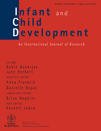
INFANT AND CHILD DEVELOPMENT
Innovating Research for Future GenerationsINFANT AND CHILD DEVELOPMENT is a prestigious academic journal published by Wiley, focusing on the critical fields of developmental and educational psychology. With an ISSN of 1522-7227 and an E-ISSN of 1522-7219, this journal has established itself as a vital resource for researchers, practitioners, and students interested in the growth and cognitive development of infants and children. The journal has been an essential part of the academic community since its inception in 1996 and is projected to run until 2024. Currently categorized in Q2 for its field in the 2023 rankings, INFANT AND CHILD DEVELOPMENT ranks #191 out of 360 in developmental and educational psychology according to Scopus, placing it in the 47th percentile overall. The journal offers a mix of open access options, ensuring that groundbreaking research is freely available to a global audience. With its commitment to enhancing the understanding of early development, this journal plays a pivotal role in advancing the science and application of developmental psychology, making significant contributions to both policy and practice.

BRITISH JOURNAL OF DEVELOPMENTAL PSYCHOLOGY
Pioneering discussions in developmental and educational psychology.British Journal of Developmental Psychology, published by Wiley, is a leading journal dedicated to advancing the field of psychology with a particular focus on developmental and educational psychology as well as developmental neuroscience. With an ISSN of 0261-510X and E-ISSN 2044-835X, this journal has become an essential platform for researchers and professionals to disseminate their findings, fostering a deeper understanding of developmental processes across the lifespan. As evidenced by its Q2 rankings in both relevant categories for 2023, the journal is recognized for its high-quality content and impactful research. It serves as a vital resource for those studying the complexities of human development, providing insights that inform both academic inquiry and practical applications. Although it does not currently offer open access, the journal maintains a strong commitment to accessibility through various subscription options. Embracing a broad and contemporary scope, the British Journal of Developmental Psychology continues to contribute significantly to scholarly conversations in the field and is poised to shape future research trajectories through 2024 and beyond.
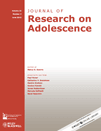
JOURNAL OF RESEARCH ON ADOLESCENCE
Exploring the Dynamics of Youth DevelopmentWelcome to the Journal of Research on Adolescence, a premier publication dedicated to advancing the understanding of the complex developmental processes of adolescence. Published by Wiley in the United Kingdom, this journal has established itself as a vital resource in the fields of Behavioral Neuroscience, Cultural Studies, and Developmental and Educational Psychology, proudly holding a Q1 ranking across multiple categories in the 2023 Scopus ranking system. With its ISSN 1050-8392 and E-ISSN 1532-7795, the journal supports a rich tradition of scholarly exploration and interdisciplinary dialogue since its inception in 1993. Although not an open-access journal, it offers subscription-based access to its critical insights and research findings. Aspiring to provide a platform for researchers, educators, and policymakers, the Journal of Research on Adolescence fosters innovative approaches and diverse perspectives necessary for understanding and addressing the challenges faced by today's youth. Join us as we delve into the ever-evolving landscape of adolescent research, shaping the discourse for future generations.
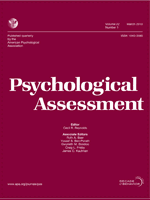
PSYCHOLOGICAL ASSESSMENT
Enhancing Mental Health Through Evidence-Based ToolsPSYCHOLOGICAL ASSESSMENT is a prestigious journal published by the American Psychological Association that has been a cornerstone in the fields of Clinical Psychology and Psychiatry and Mental Health since its inception in 1989. With an impressive impact factor, this journal is ranked in the Q1 category for both related fields, showcasing its critical role in disseminating high-quality research and scholarly articles. The journal focuses on the development, validation, and application of psychological assessment tools, inviting contributions that enhance the understanding of mental health through rigorous methodological frameworks. As evidenced by its high Scopus rankings—66th in Clinical Psychology and 165th in Psychiatry and Mental Health—PSYCHOLOGICAL ASSESSMENT is indispensable for researchers, professionals, and students who seek to advance their knowledge and practice in psychological evaluation. While it is not an open-access journal, the insights provided are vital for anyone dedicated to the nuanced study of psychological assessment and diagnosis. For more information, visit the journal's page on the American Psychological Association's website.

Journal of Cystic Fibrosis
Exploring breakthroughs in cystic fibrosis research.The Journal of Cystic Fibrosis, published by Elsevier, is a premier academic journal dedicated to advancing the understanding and management of cystic fibrosis. With a strong reputation in the fields of Pediatrics, Perinatology, and Pulmonary and Respiratory Medicine, this journal holds a distinguished Q1 category ranking in both disciplines, underscoring its critical role in disseminating impactful research. Since its inception in 2002, the journal has provided a platform for innovative studies and reviews, contributing to the growing body of knowledge essential for clinical practice and policy formulation. As of 2023, it ranks 13th out of 330 in Pediatrics, and 17th out of 155 in Pulmonary and Respiratory Medicine, placing it in the top echelons of scholarly communications with a respective 96th and 89th percentile. Researchers, professionals, and students engaged in cystic fibrosis research and care will find this journal invaluable for its rigorous peer-reviewed content, which bridges clinical practice and research objectives without the Open Access format. The journal continues to evolve, exploring new therapeutic avenues and fostering best practices, positioned to impact both academic inquiry and patient outcomes significantly.
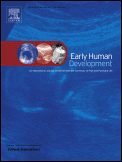
EARLY HUMAN DEVELOPMENT
Driving progress in early human development and child health.EARLY HUMAN DEVELOPMENT is a prestigious journal dedicated to advancing knowledge in the vital fields of Obstetrics and Gynecology as well as Pediatrics, Perinatology, and Child Health. Published by Elsevier Ireland Ltd, this journal has established itself as an essential resource for researchers and practitioners focusing on early life development. With an impressive ranking in the Q1 category for Pediatrics and Q2 for Obstetrics and Gynecology, it provides a platform for high-quality research that informs clinical practice and policy. The journal spans from 1977 to 2024, reflecting over four decades of scholarly contributions. Although currently not open access, the robust impact factor and strong Scopus rankings, including a 76th percentile in Pediatrics, ensure it remains a critical asset for professionals aiming to stay at the forefront of advancements in maternal and child health. Through its curated articles, EARLY HUMAN DEVELOPMENT aims to promote interdisciplinary collaboration and foster innovative research that ultimately enhances the health and development of children worldwide.